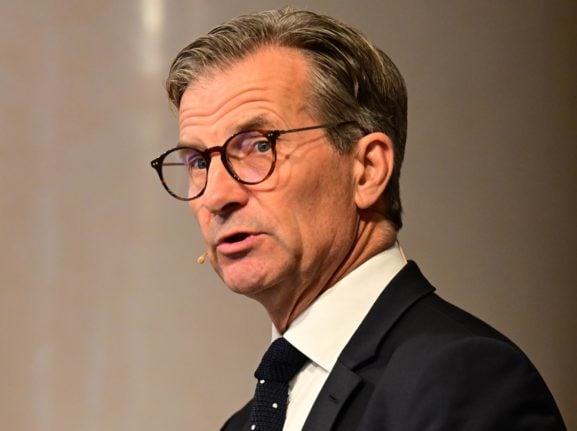The decision to lower the so-called policy rate was widely expected, as the central bank itself indicated in a policy rate prognosis from March that it could lower rates between five and six times before the end of 2025, starting in either May or June this year.
“Monetary policy and diminishing supply shocks have contributed to inflation falling, and now it’s nearing the target,” the bank wrote in a press statement.
The bank’s inflation target is 2 percent. In March, inflation was just 2.2 percent.
“If the inflation outlook remains the same, the policy rate could be lowered at least two more times in the second half of the year,” the bank wrote, adding that new information since its most recent monetary policy report was published in March “strengthens the picture of inflation also being closer to the target in the slightly longer term”.
This effectively rules out the possibility of a further rate cut in June.
It also warned that the outlooks for inflation are “uncertain”, highlighting the strong American economy, geopolitical unrest and the krona’s exchange rate as risk factors which could cause inflation to rise again.
“Changes to monetary policy should therefore be taken carefully, with gradual cuts to the policy rate.”
Thursday’s announcement is crucial, as the policy rate is the bank’s main monetary policy tool. It decides which rates Swedish banks can deposit in and borrow money from the Riksbank, which in turn affects the banks’ own interest rates on savings, loans and mortgages.
If bank interest rates are high, it’s expensive to borrow money, which means people spend less and as a result inflation drops.
This cut to the policy rate won’t immediately lower the cost of your mortgage, but it’s likely to have a knock-on effect.
At its last meeting before the cut, the bank chose to keep rates the same at 4 percent, where they stood since September last year – the highest policy rate seen in Sweden since 2008, and the end of almost a year and a half of interest rate hikes.
The bank predicted in March that the policy rate could drop to as low as 2.75 percent, a drop of 1.25 percentage points, by the end of 2025. If mortgage rates also drop by the same amount, it would reduce the cost of a 3 million kronor mortgage by around 3,000 kronor a month.
The new rate will come into effect on May 15th.



 Please whitelist us to continue reading.
Please whitelist us to continue reading.
Member comments